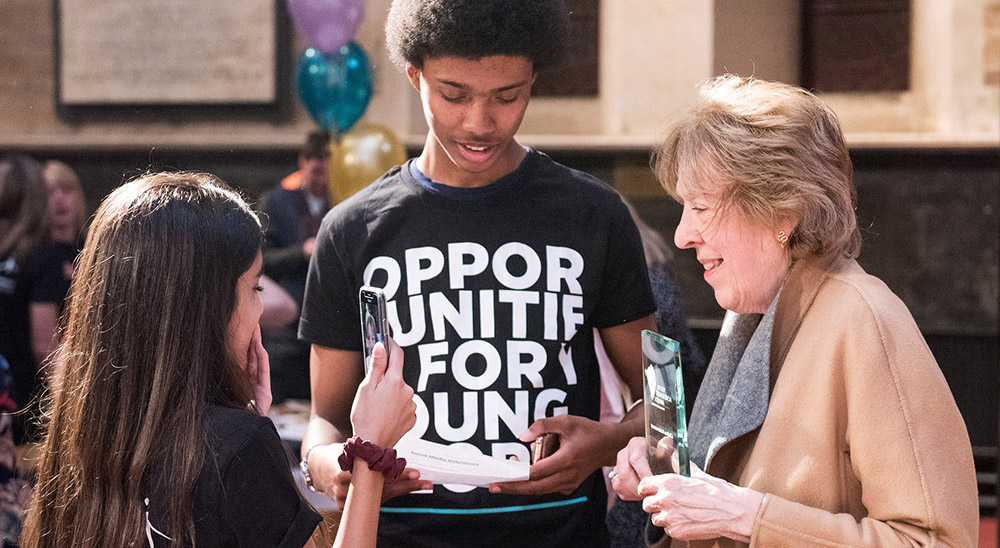
Picture the scene. A large family meal is taking place, but there are two tables.
At one sit all the adults, engaged in conversation and eating politely. At the other table sit the children, complete with plastic crockery, food spilled everywhere in a scene not entirely unlike the Lord of the Flies. Sound familiar?
Now imagine that scene in a church context. The adults are in one room together, hearing from God’s Word, worshipping and praying, sharing and learning.
The young people are taught separately and may never experience what happens in that other room, until one day they are informed they are too old for this room and must fit into the other room, with no experience or support.
For too long and too often, our approach to supporting young people in church has been this ‘two-table’ approach.
Instead, I believe that as churches we need to head to a ‘one-table’ model where everything is done side-by-side – where children are paired up with adults, who can help them learn how to use ‘cutlery’ and who can be observed modelling relationships, values and behaviours. Whilst it definitely requires more work, the outcome is much more beneficial for both parties.
Here are four top tips I’ve picked up from my own personal experiences about how we can best support young people in our churches.
1. Intentionally foster intergenerational relationships
Young people will not, by nature, talk to people outside of their demographic, or friendship circle. Particularly the older generations.

Yet it’s these people we want to encourage the young people to get to know. People with wisdom, people who are mature in their faith, people who have experienced some of their struggles. So what needs to happen to find a way to make these two worlds collide?
In one of my youth groups I did a very simple activity. Whilst the young people were out during the service I asked them all to think of one thing they wanted prayer for, and to write it on a piece of paper. Then, at the end of the session I asked them to take those pieces of paper and approach an older person, who they didn’t know and give them that piece of paper. I watched at the end of the service, and it happened! The young people needed some courage, but they did it, and the old people were delighted!
This should breed an ongoing conversation and relationship, and lead on to more prayer requests, more conversation and hopefully a mutual relationship.
2. Mentoring
As my initial reflection illustrated, one of the most profound and biggest impacts we can have on our young people is through one-to-one discipleship or mentoring. It goes without saying that this has to be done in accordance with best safeguarding practices. These mentoring relationships can be short-term with a specific outcome, or done on an ad-hoc basis or on a longer term understanding. These relationships give you a unique opportunity to help a young person on an individual, specific basis. Done well, they equip and release young people and also challenge and encourage them as they grow in their faith.
3. Discover (and use) their giftings
If you find someone a role, or purpose, you are far more likely to keep them onboard. The same goes for young people. Find out what they’re good at, what excites them, what motivates them and then find ways of including that in your church life. That may involve taking a few risks, it certainly will be about creating spaces where it is safe to try and fail. But if you show young people that you’re willing to invest in them, then they will repay that and invest in you.
4. Involve the parents
Recent research has shown that family is by far the most important influence on a young person’s spiritual thinking and development. Therefore it is imperative that whatever work you are trying to do, the parents must be co-partners with you. Whether that’s through simple approaches such as letting parents know the themes and passages you are exploring, or providing resources that parents can then use at home to further discussions that have been had away from home. Go the extra mile by providing workshops, resources or events specifically for parents to equip them in their role as they seek to disciple their own children.

Nick Francis has over 20 years of youth work experience, as a volunteer and paid professional. He lives in Oxfordshire with his wife and two children.
This article first appeared in Life magazine, issue 12
